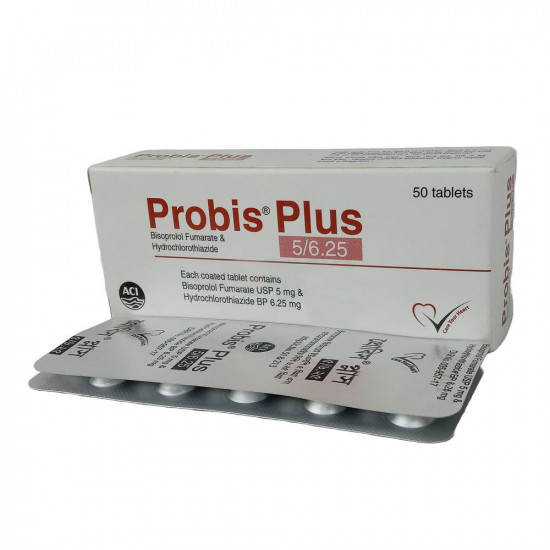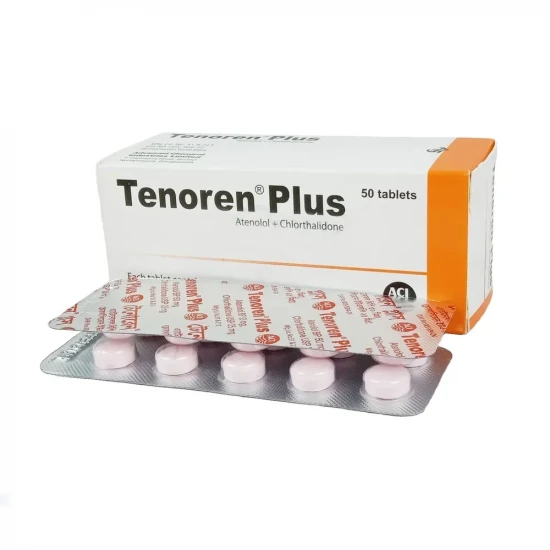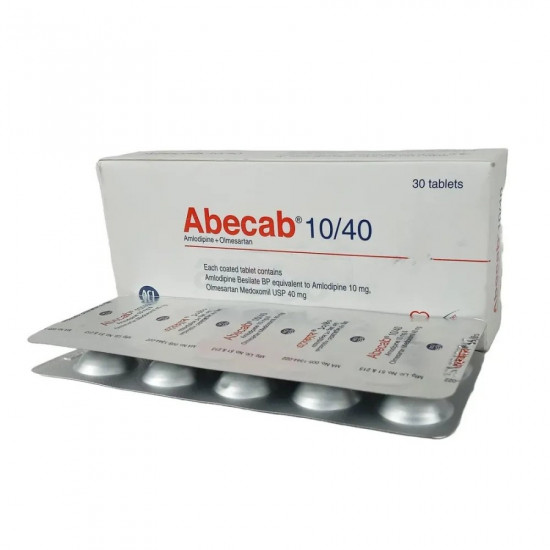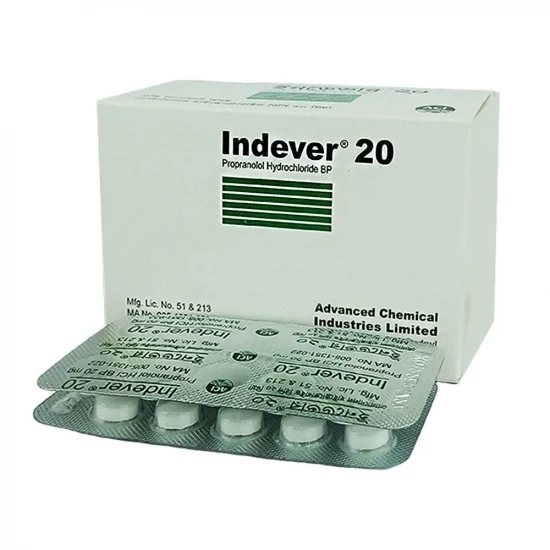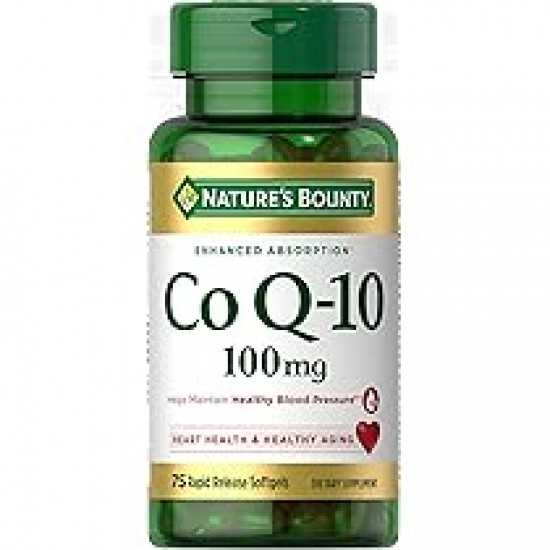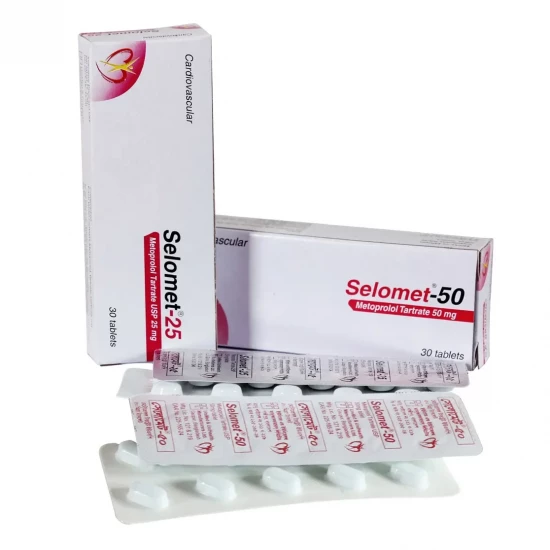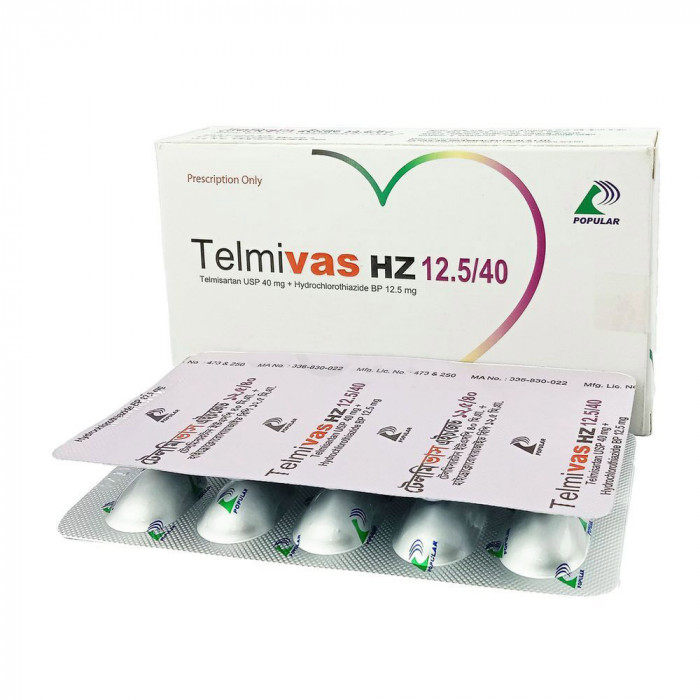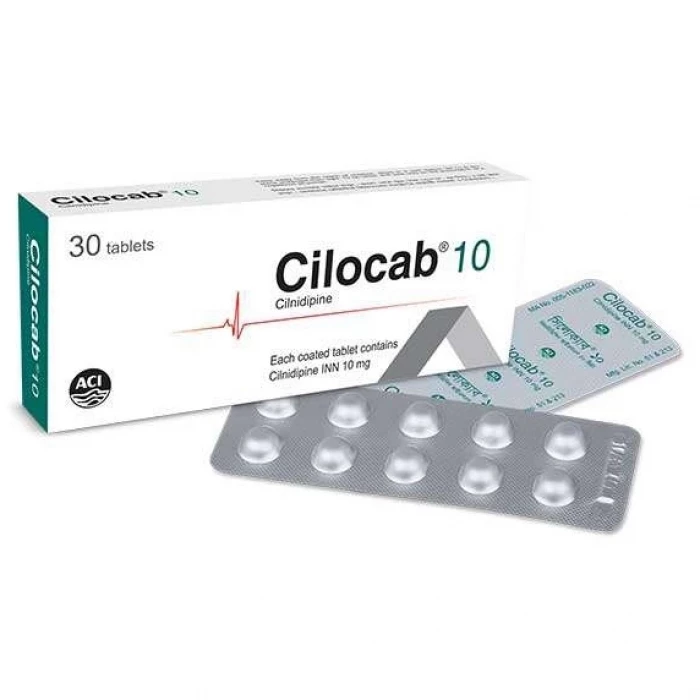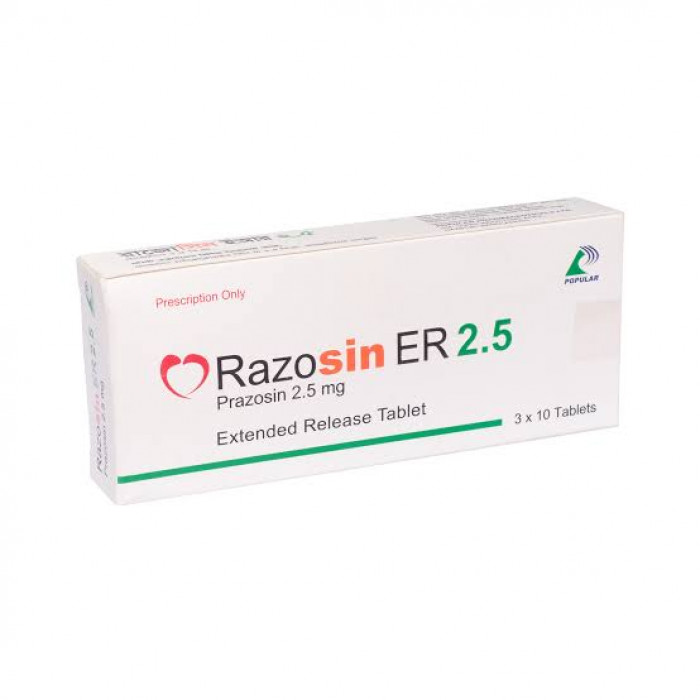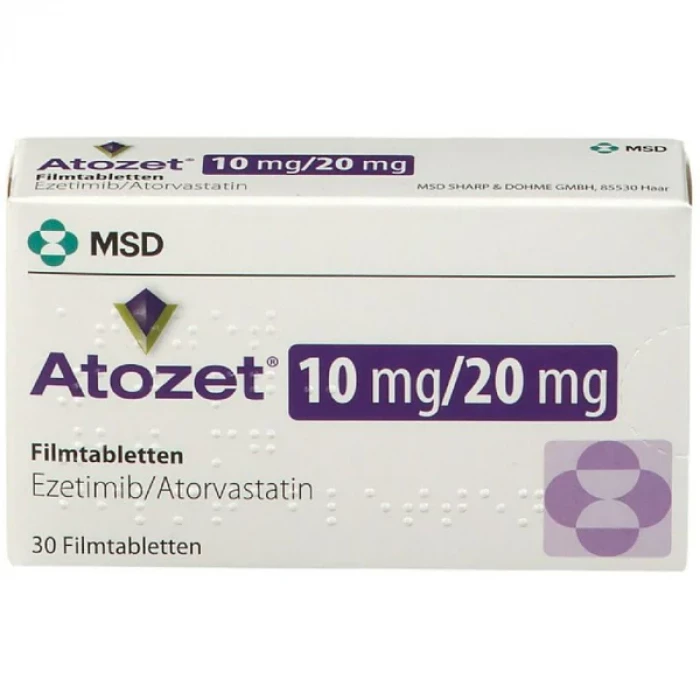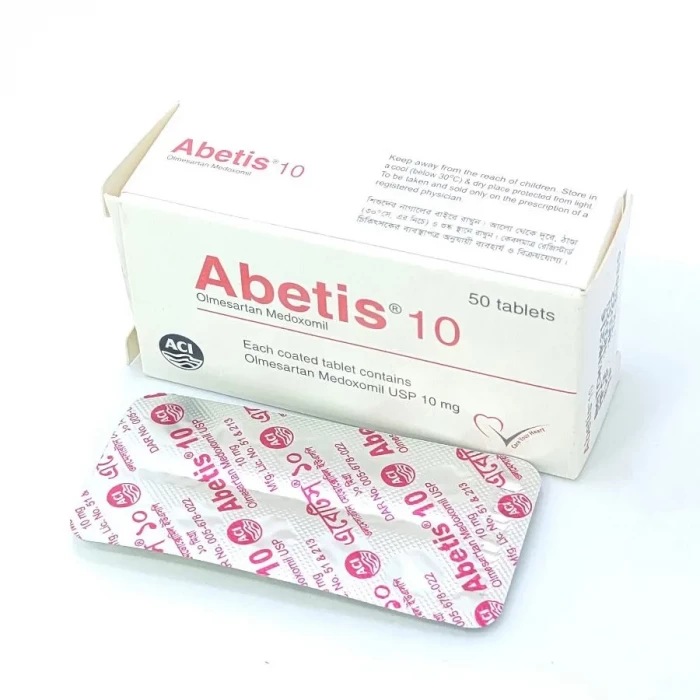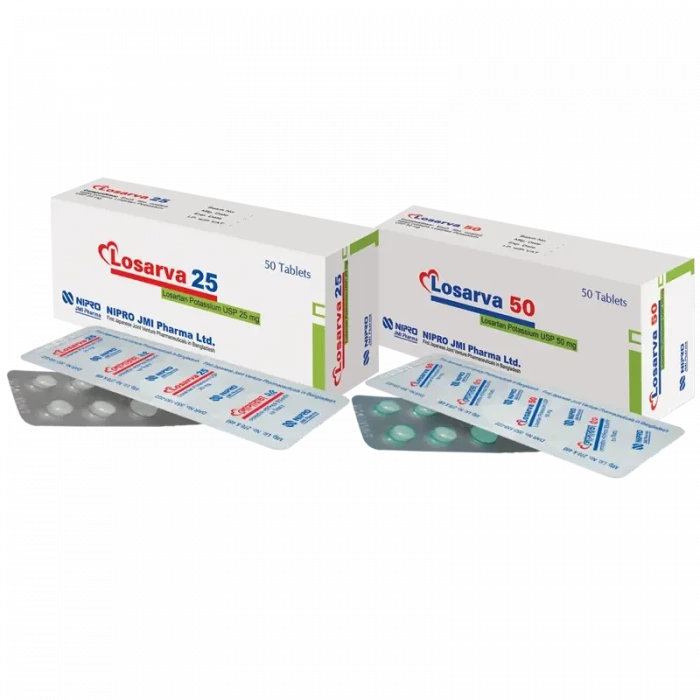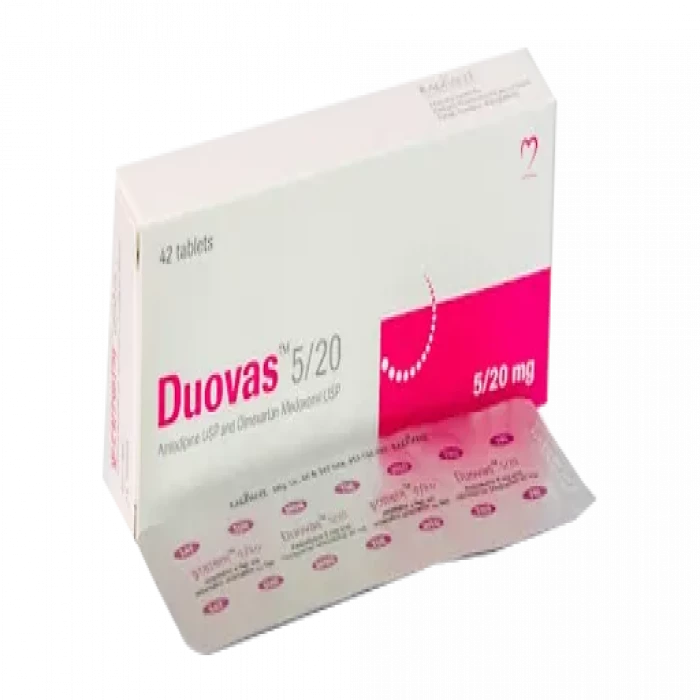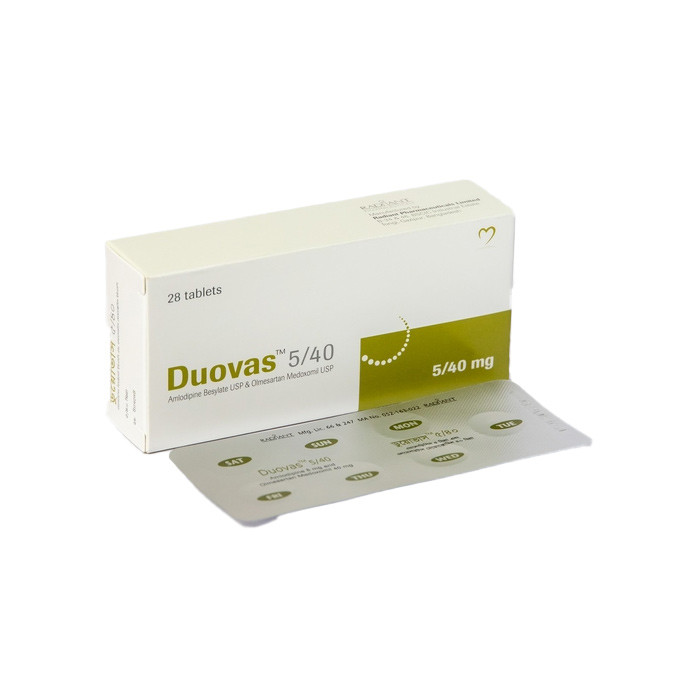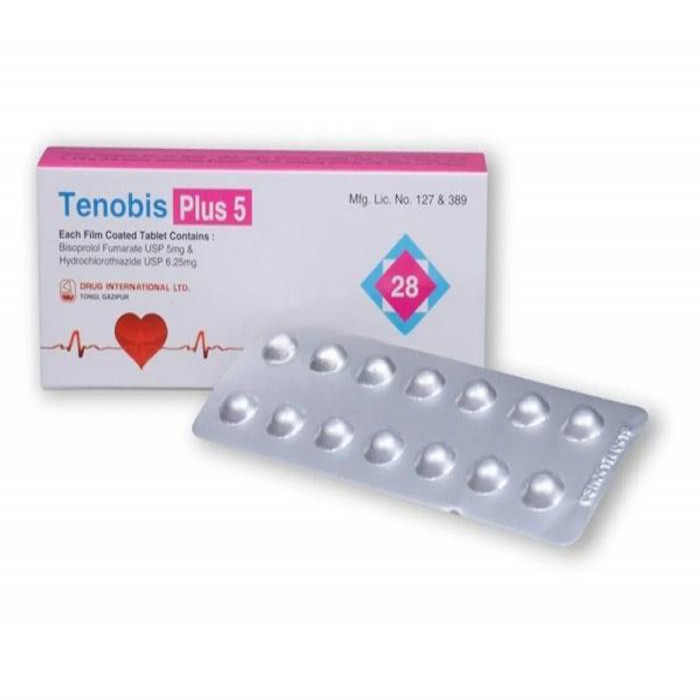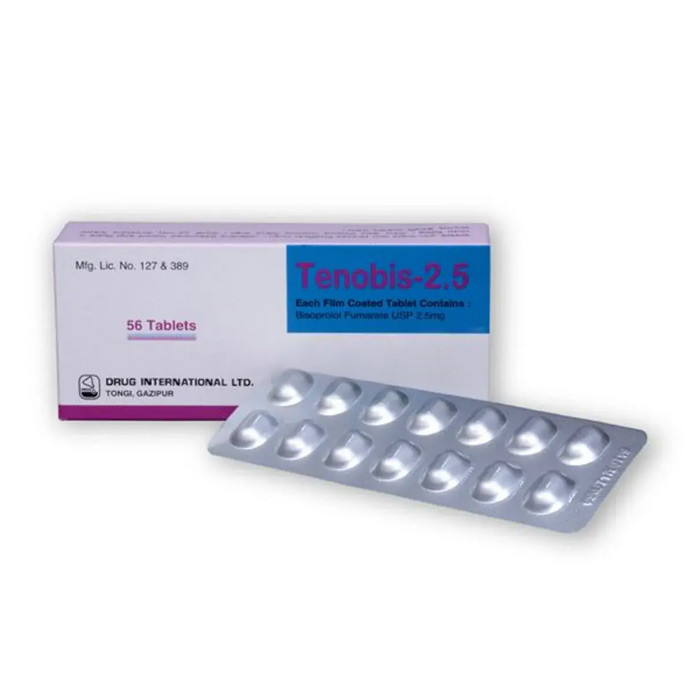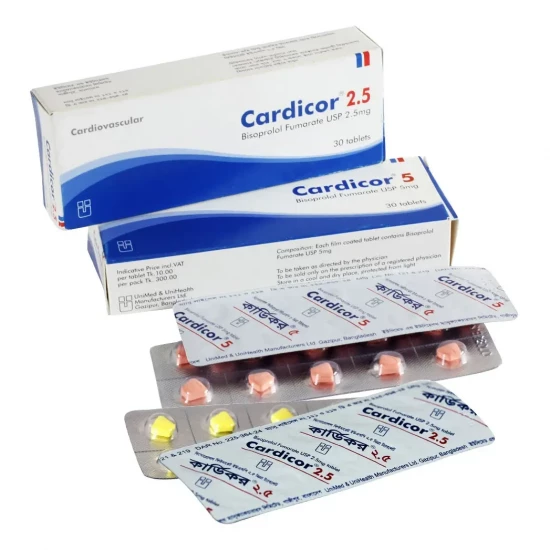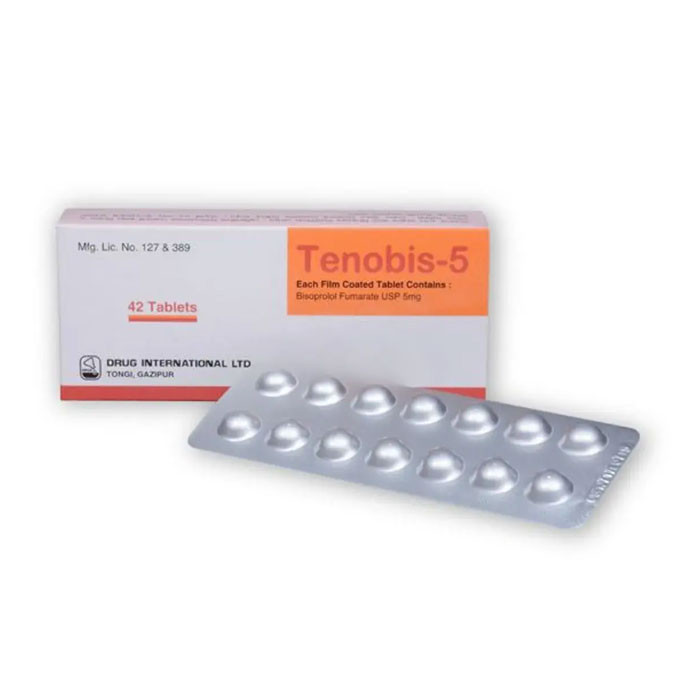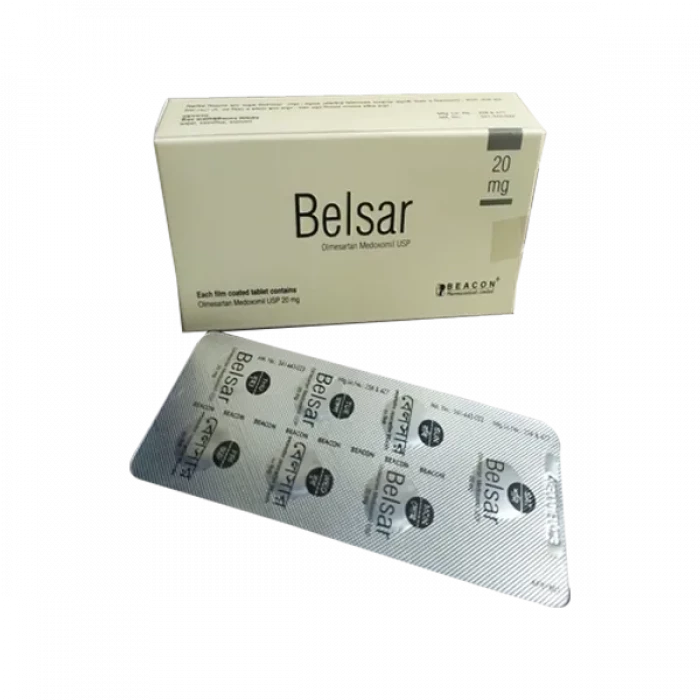
✔ 100% Authentic Product
👁️ Currently Viewing 1121
Type: Tab. Generic Name:Irbesartan INN 150mg & Hydrochlorothiazioe 12.5mg/tablet. Manufacturer/Distributor: Unihealth/UniMed
Discount
Price: ৳ 114
MRP:
৳
120
5%
Off

100% Genuine Products, Guaranteed

Safe & Secure Payments, Always

Fast, Secure & Efficient Delivery

Proper Packaging
 Cash on Delivery - All over Bangladesh
Cash on Delivery - All over Bangladesh Regular Delivery - 12-24 Hours, Dhaka City* Charge Tk.39-59
Regular Delivery - 12-24 Hours, Dhaka City* Charge Tk.39-59 Regular Delivery - 24-48 Hours, Other Cities* Charge Tk.99-110
Regular Delivery - 24-48 Hours, Other Cities* Charge Tk.99-110
🌙 রমযান অফার 🌙
 ফ্রি ডেলিভারিঃ - ৭৯৯ টাকা+ অর্ডারে, ঢাকা
শহরে
ফ্রি ডেলিভারিঃ - ৭৯৯ টাকা+ অর্ডারে, ঢাকা
শহরে ফ্রি ডেলিভারিঃ - ২৭৯৯ টাকা+ অর্ডারে, ঢাকার
বাহিরে
ফ্রি ডেলিভারিঃ - ২৭৯৯ টাকা+ অর্ডারে, ঢাকার
বাহিরে
📲 মোবাইল অ্যাপ অর্ডারে সাশ্রয় বেশী
-
Google Play Store থেকে ডাউনলোড
-
Apple Store থেকে ডাউনলোড
100% Genuine Products, Guaranteed
Safe & Secure Payments, Always
Fast, Secure & Efficient Delivery
Proper Packaging
 Cash on Delivery - All over Bangladesh
Cash on Delivery - All over Bangladesh Regular Delivery - 12-24 Hours, Dhaka City* Charge Tk.39-59
Regular Delivery - 12-24 Hours, Dhaka City* Charge Tk.39-59 Regular Delivery - 24-48 Hours, Other Cities* Charge Tk.99-110
Regular Delivery - 24-48 Hours, Other Cities* Charge Tk.99-110 ফ্রি ডেলিভারিঃ - ৭৯৯ টাকা+ অর্ডারে, ঢাকা
শহরে
ফ্রি ডেলিভারিঃ - ৭৯৯ টাকা+ অর্ডারে, ঢাকা
শহরে ফ্রি ডেলিভারিঃ - ২৭৯৯ টাকা+ অর্ডারে, ঢাকার
বাহিরে
ফ্রি ডেলিভারিঃ - ২৭৯৯ টাকা+ অর্ডারে, ঢাকার
বাহিরে- Google Play Store থেকে ডাউনলোড
- Apple Store থেকে ডাউনলোড
🌙 রমযান অফার 🌙
📲 মোবাইল অ্যাপ অর্ডারে সাশ্রয় বেশী
✅ Description:
Indications
Irbesartan and hydrochlorothiazide tablets are suitable for the treatment of hypertension. The tablet can be used for single-drug treatment of patients who cannot adequately control blood pressure. For patients who may require multiple medications to reach their blood pressure goals, this tablet can also be used as initial therapy. The selection of irbesartan and hydrochlorothiazide tablets as initial treatment for hypertension should be based on an evaluation of the potential benefits and risks.
Patients with stage 2 hypertension (moderate or severe) are at relatively high risk for cardiovascular events (such as stroke, heart attack, and heart failure), kidney failure, and vision problems, so prompt treatment is clinically important. The decision to use combination therapy as initial treatment should vary from person to person and may be based on factors such as baseline blood pressure, target goals, and the greater likelihood that combination therapy will achieve targets compared to monotherapy.
Pharmacology
Irbesartan: Angiotensin II is an effective vasoconstrictor, formed by angiotensin I in a reaction catalyzed by angiotensin converting enzyme (ACE, kininase II). Angiotensin II is the main blood pressure agent of RAS and also stimulates adrenal cortex synthesis and aldosterone secretion, cardiac contraction, renal sodium absorption, sympathetic nervous system activity, and cell growth. smooth muscle. Irbesartan binds selectively to the angiotensin II receptor AT1 to block vasoconstriction and aldosterone secretion of angiotensin II. AT2 receptors are also present in many tissues, but they do not participate in cardiovascular homeostasis.
Irbesartan is a specific competitive antagonist of the AT1 receptor, has a much higher affinity for the AT1 receptor than for the AT2 receptor (more than 8,500 times) and has no agonist activity.
Blockade of the AT1 receptor eliminates the negative feedback of angiotensin II on renin secretion, but the resulting increase in plasma renin activity and circulating angiotensin II cannot overcome the effect of irbesartan on blood pressure.
Irbesartan does not inhibit ACE or renin, nor does it affect other hormone receptors or ion channels that are known to be involved in cardiovascular regulation of blood pressure and sodium homeostasis. Because Irbesartan does not inhibit ACE, it does not affect the response to bradykinin; it is not clear whether this is of clinical significance.
Hydrochlorothiazide: Hydrochlorothiazide is a thiazide diuretic. Thiazides affect the renal tubular electrolyte reabsorption mechanism, directly increasing the excretion of approximately the same amount of sodium and chloride. Indirectly, the diuretic effect of hydrochlorothiazide reduces plasma volume, which increases plasma renin activity, increases aldosterone secretion, increases urinary potassium loss, and decreases serum potassium. Renal aldosterone binding is mediated by angiotensin II, so co-administration of angiotensin II receptor antagonists tends to reverse the potassium loss associated with these diuretics.
Dosage & Administration
Initial therapy: Irbesartan 150 mg & Hydrochlorothiazide 12.5 mg orally once a day; may increase after 1 to 2 weeks.
Add-on/Replacement therapy: Irbesartan 150 to 300 mg & Hydrochlorothiazide 12.5 to 25 mg orally once a day
Maximum dose: Irbesartan 300 mg & Hydrochlorothiazide 25 mg orally once a day
Interaction
CNS depressants, antidiabetics, cholestyramine & colestipol resins, corticosteroids, ACTH, digitalis glycosides, antiarrhythmics, NSAIDs, tubocurarine, antigout medicines, Ca salts Diazoxide, atropine, beperiden, amantadine, cyclophosphamide, and methotrexate are some of the drugs used.
Contraindications
Patients who are hypersensitive to any component of this medication should not use irbesartan or hydrochlorothiazide tablets. This medication is contraindicated in individuals with anuria or hypersensitivity to other sulfonamide-derived treatments due to the hydrochlorothiazide component. In diabetic patients, do not combine aliskiren with irbesartan or hydrochlorothiazide pills.
Side Effects
Irbesartan: Hyperkalemia (19%), chest discomfort (2%), tachycardia (1%), and abnormal urine (1%). (2 percent ), Musculoskeletal discomfort (6 percent), Flu-like symptoms (3 percent), Edema (3 percent), Tachycardia (1 percent), and Chest pain (1 percent) are the most common complaints (2 percent ), Creatinine levels have risen (1 percent ), BUN has risen (2 percent ), Dizziness (9%), URI (9%), Orthostatic hypotension (5%), Fatigue (4%), Diarrhea (3%), and Dyspepsia (3%), are the most common symptoms (2 percent )
Anorexia, epigastric discomfort, hypotension, orthostatic hypotension, photosensitivity, and anaphylaxis are all side effects of hydrochlorothiazide. Exfoliative dermatitis, including toxic epidermal necrolysis, Anemia, Confusion, Erythema multiforme, Stevens-Johnson syndrome, Exfoliative dermatitis, Stevens-Johnson syndrome Hyperuricemia, dizziness, hypokalemia and/or hypomagnesemia Headache
Pregnancy & Lactation
Pregnancy category D. The use of drugs that act on the renin-angiotensin system in the second and third trimesters will reduce the fetal kidney function and increase the morbidity and mortality of the fetus and newborns. The resulting oligohydramnios may be related to fetal lung hypoplasia and bone deformation. Possible neonatal adverse reactions include skull hypoplasia, anuria, hypotension, renal failure, and death. When pregnancy is discovered, irbesartan and hydrochlorothiazide should be discontinued as soon as possible.
Thiazides pass through the placenta. The use of thiazides during pregnancy can lead to the risk of fetal or neonatal jaundice, thrombocytopenia, and other adverse reactions that may occur in adults.
Nursing mothers: Whether irbesartan is secreted by human milk is not clear, but irbesartan or some metabolites of irbesartan are secreted in low concentrations in the milk of nursing rats.
Thiazides appear in human milk. Due to the possibility of adverse reactions in nursing babies, the importance of the drug to the mother should be considered, and the decision to stop breastfeeding or medication should be stopped.
Precautions & Warnings
Child: Do not nurse
Lactation: Discontinue drug or do not nurse
Storage Conditions
Should be stored in cool and dry place
⚠️Disclaimer:
At ePharma, we’re committed to providing accurate and accessible health information. However, all content is intended for informational purposes only and should not replace medical advice from a qualified physician. Please consult your healthcare provider for personalized guidance. We aim to support, not substitute, the doctor-patient relationship.




